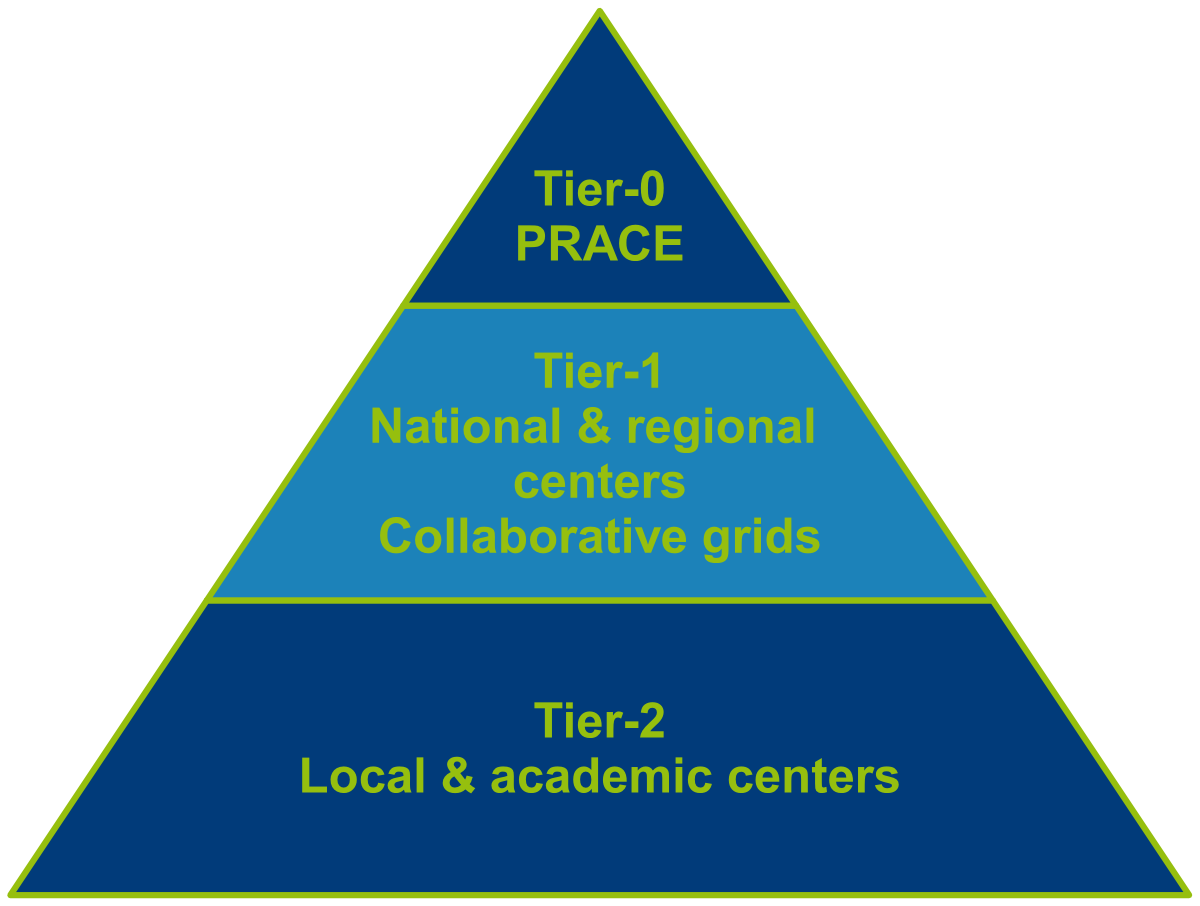Lucia access
Context
 The PRACE initiative – Partnership for Advanced Computing in Europe – has setup a pan-european research infrastructure supporting scientific excellence providing HPC services and world-class supercomputers. Belgium is member of PRACE since October 2012. The PRACE infrastructure follows a Tier-approach in which techniques are developped and tested first at lower local levels before being scaled up and used for the resolution of scientific and technical challenges at the upper levels.
The PRACE initiative – Partnership for Advanced Computing in Europe – has setup a pan-european research infrastructure supporting scientific excellence providing HPC services and world-class supercomputers. Belgium is member of PRACE since October 2012. The PRACE infrastructure follows a Tier-approach in which techniques are developped and tested first at lower local levels before being scaled up and used for the resolution of scientific and technical challenges at the upper levels.
In Fédération Wallonie-Bruxelles, Tier-2 computers are managed by the CÉCI – Consortium des Équipements de Calcul Intensif – and Cenaero has been appointed in 2012 to the deployment and operation of the Tier-1 computer in Wallonia. The largest part of the resources available on this machine is dedicated to academic research, the other part being used for applied research or by industrial actors directly benefiting from high performance computing for their commercial activities.
Project categories
The supercomputer resources are allocated, in accordance with the applicable agreement established with the Walloon Region, to projects classified in 5 categories.
CAT 1 : activité non-économic with free access
- CAT 1a: university and college units as defined in the decree
- CAT 1b: approved research centers within the meaning of the decree, as part of a non-economic activity
CAT 2: economic activity with access at market price [1]
- CAT 2a: university and college units as defined in the decree
- CAT 2b: accredited research centers within the meaning of the decree, as part of an economic activity
- CAT 2c: companies engaged in economic activity
The difference between economic and non-economic activity is established as follows:
Economic activity :
- Contract research on behalf of a company
- Contractual technology watch
- Tests, expert appraisals, trials, etc.
Non-economic activity :
- Independent research in which the accredited research center, university or college unit determines the details of the project, owns the results and assumes the potential risk of failure.
- Effective collaborative research meeting certain criteria
[1] Rates in force as validated on August 29, 2023.


